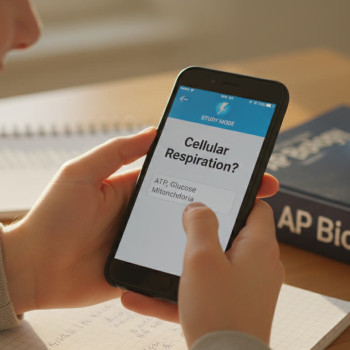How AP Differs From Honors, IB, and A‑Levels: A Parent’s Friendly Guide
Choosing the right pathway for your child’s high school experience can feel like navigating a dense forest with a flashlight — you can see the path directly ahead, but the whole picture is fuzzy. AP, Honors, International Baccalaureate (IB), and A‑Levels each have their own maps, signs, and terrain. As a parent, you want to understand what each route will demand, how colleges view them, and which will let your teen flourish without burning out.

Why this matters
High school course choices shape not only college applications but also your child’s learning habits, confidence, and subject mastery. The right course can provide intellectual challenge and clearer college credit opportunities. The wrong fit can lead to stress, diminished motivation, or missed chances to build depth in an area your child loves.
Quick overview: What each program is at a glance
Before we dig into the differences, here’s a short, plain‑English snapshot of each option so you and your teen can quickly see the landscape.
- Honors: School‑level advanced courses that go deeper or move faster than standard classes. Structure and rigor vary by school.
- AP (Advanced Placement): College Board courses aimed at college‑level content in a one‑year high school format, culminating in an AP exam. Passing scores may earn college credit or placement.
- IB (International Baccalaureate): A comprehensive two‑year program (Diploma Programme) with a global curriculum, internal assessments, an extended essay, and a focus on critical thinking and international mindedness.
- A‑Levels: UK‑style subject‑specific qualifications typically taken over two years, allowing students to specialize deeply in 3–4 subjects.
Core differences explained
1) Structure and scope
Honors classes are designed by individual high schools. That means the curriculum can vary widely from district to district. AP courses follow a College Board framework that targets college‑level learning in a single academic year. IB’s Diploma Programme is holistic and prescriptive: it includes six subject groups plus core requirements (Theory of Knowledge, the Extended Essay, and Creativity, Activity, Service). A‑Levels are subject-centered and often studied in depth over two years, with final exams that determine qualification.
2) Depth vs. breadth
If your child loves diving deep into a few subjects, A‑Levels and IB’s higher‑level courses can be rewarding. A‑Levels promote deep specialization; students often take three or four subjects but explore them intensively. IB balances breadth and depth — students study across disciplines but can take several subjects at Higher Level for depth. AP allows a la carte depth: students pick individual advanced courses by subject and can take as many as they can manage. Honors typically adds depth relative to regular classes, but not to the same standardized level as AP, IB, or A‑Levels.
3) Assessment style and stakes
AP examinations are standardized, mostly end‑of‑year tests scored by the College Board. Performance can translate into college credit or placement based on college policy. IB uses both internal assessments (scored by teachers and moderated externally) and external global exams; the Diploma Programme carries cumulative point totals that determine the diploma award. A‑Levels focus on final exams with mark schemes that are externally graded. Honors grading is local and often follows the school’s semester or trimester exam schedule.
4) College recognition and credit
Colleges and universities worldwide recognize AP, IB, and A‑Levels, but policies on credit and placement differ. Many U.S. schools award credit or advanced standing for high AP scores; IB diplomas and high HL (Higher Level) scores are also well recognized and sometimes preferred for holistic admissions. A‑Levels are especially well understood internationally and can translate into credit or advanced placement. Honors courses, while valuable for GPA and rigor, rarely offer direct college credit since they aren’t standardized across schools.
5) Time commitment and workload
All advanced pathways demand more time and effort, but how that time is spent differs. AP courses are intense for the year they’re taken and concentrate on preparing for one comprehensive exam. IB’s workload is spread across two years and includes continual assessments and a major research project (the Extended Essay). A‑Levels require sustained study with high‑stakes finals, and Honors schedules depend on local pacing—sometimes faster, sometimes just more detailed.
How to compare them for your child
Match the program to personality and goals
Ask yourself and your teen questions like:
- Does my child prefer breadth or depth?
- Is my child organized and motivated enough for a two‑year program like IB or A‑Levels?
- Does the college list value specialized subject strength or a broad curriculum?
For example, a student aiming to major in physics might benefit from A‑Levels’ deep focus in math and science or AP’s individual advanced science courses. A child who enjoys a globally minded education with research skills might flourish in IB. If flexibility and trying multiple subjects are priorities, AP’s a la carte model is attractive.
Consider scheduling and school availability
Not every school offers IB or A‑Levels, and some limit AP or Honors offerings. Practical realities matter: if the best program isn’t available, look for local alternatives or online options. Also factor in extracurriculars, family obligations, and mental health — a packed schedule isn’t always a badge of honor.
Practical comparison table
| Feature | Honors | AP | IB (Diploma) | A‑Levels |
|---|---|---|---|---|
| Typical Length | 1 semester to 1 year | 1 year | 2 years | 2 years |
| Assessment | Local tests and exams | Standardized end‑of‑year exam | Combination of internal and external assessments | Externally graded final exams |
| College Credit Potential | Rarely (mostly GPA weight) | Often, depending on score and college policy | Often, especially with high HL scores or full diploma | Often, based on exam results |
| Best For | School‑based acceleration or enrichment | Focused college prep in specific subjects | Holistic development, research, global perspective | Deep specialization in chosen subjects |
| Workload Pattern | Variable | High intensity within year | Sustained over two years with projects | Sustained, exam‑focused |
Nitty‑gritty parents want to know
Will AP help with college admissions?
Yes — but context matters. Admissions officers look for meaningful rigor that fits a student’s school opportunities and academic story. A transcript peppered with genuine AP or IB courses demonstrates academic ambition. But admissions teams also consider how many advanced courses were available at the high school and how well the student performed. In short, depth and success often matter more than the label.
Does AP give college credit?
Many colleges grant credit or placement for high AP exam scores; policies vary widely. Some grant credit for scores of 4 or 5, others accept 3 in certain subjects, and some offer placement without credit. Because policies change, it’s smart to check specific colleges’ current rules when planning courses.
Is IB harder than AP?
“Harder” is the wrong word — they’re different. IB’s Diploma Programme spreads workload, requires research, and demands continuous assessment plus final exams. AP is concentrated around a single, content‑heavy exam per subject. Which is harder depends on your child’s strengths: sustained project work vs. short‑term exam performance.
Real‑world examples and scenarios
Scenario 1: The passionate biology student
Sam loves biology and wants to major in biomedical sciences. If Sam’s school offers A‑Levels with deep biology and chemistry focus, that could be ideal for subject mastery. Alternatively, taking AP Biology and AP Chemistry gives similar high‑level content with flexibility to add AP Calculus. Pairing AP courses with targeted tutoring — for instance Sparkl’s personalized 1‑on‑1 guidance that creates tailored study plans and provides expert tutors and AI‑driven insights — can be a game changer when preparing for those high‑stakes AP exams.
Scenario 2: The globally curious student
Priya enjoys languages, interdisciplinary thinking, and community projects. IB’s Diploma Programme fits naturally: it blends subjects, requires an Extended Essay, and emphasizes service and TOK. Parents should expect a sustained two‑year commitment and support their teen in time management and research. Supplemental tutoring tailored to IB requirements — coaching on the Extended Essay or TOK essay strategies — can lighten the load and sharpen outcomes.
Scenario 3: The undecided, hyper‑involved teen
If your child is exploring multiple interests and has a packed extracurricular calendar, AP’s a la carte model is advantageous. They can try AP courses in different subjects to test strengths without the multi‑year IB commitment. Honors classes can also be a lower‑stakes way to test readiness for advanced courses later on.
How to support your teen practically
1) Prioritize well‑being over resume building
There’s a temptation to stack courses to impress colleges. Instead, aim for sustained excellence. High grades in fewer advanced courses look better than mediocre grades across many. Keep an eye on stress, sleep, and social time.
2) Coach study and organization skills
Advanced courses test not just knowledge but study habits: planning, note synthesis, and exam strategy. Small interventions — a weekly study schedule, calendar blocks for projects, or regular check‑ins — can have outsized impact. If your family needs extra structure, Sparkl’s personalized tutoring offers 1‑on‑1 guidance and tailored study plans to build these skills.
3) Use summer and after‑school time strategically
Summer can be an excellent time to preview content for AP or A‑Levels without the pressure of grades. Low‑pressure reading, introductory textbooks, or light online modules can make the first semester less frantic.
4) Communicate with your teen’s counselor and teachers
Course placement decisions are collaborative. Talk to counselors about long‑term plans and reach out to teachers about expected workload and fit. Many schools offer sample syllabi that reveal how content is paced and assessed.
When tutoring or extra help makes sense
Tutoring isn’t a remedial measure — it’s a smart investment in focused guidance. Consider targeted help when:
- Your teen is taking a brand‑new advanced class for the first time.
- They have a narrow weakness (e.g., exam technique or essay structure) that limits performance.
- They’re balancing multiple demands and need a personalized study plan to optimize time.
Quality tutoring is personalized, subject‑expert, and strategic. For parents seeking that combination, Sparkl’s personalized tutoring emphasizes 1‑on‑1 sessions, tailored study plans, expert tutors, and AI‑driven insights to focus practice on the areas that yield the most improvement.

Checklist for making the decision
Use this short checklist with your teen to decide which direction to take:
- What subjects does the student love enough to study in depth?
- Does the school offer IB, A‑Levels, AP, or Honors courses? If not, are reputable online or local alternatives available?
- Is the student organized and motivated for extended two‑year programs?
- How will course choices affect college applications and graduation requirements?
- What is the family’s tolerance for academic stress and time tradeoffs?
Final thoughts: It’s about fit, not labels
AP, Honors, IB, and A‑Levels each offer excellent pathways. The right choice depends on your child’s learning style, interests, and long‑term goals. A transcript that tells a coherent story — where choices align with passion and ability — is more powerful than a checklist of prestigious course names.
Parents play a vital role as thoughtful guides: ask good questions, prioritize health and balance, and help your teen find resources that match their needs. If your family wants structured, subject‑specific support, consider professional tutoring that fits into the overall plan. Programs like Sparkl’s personalized tutoring can provide one‑on‑one guidance, tailored study strategies, and expert feedback that make a real difference, especially when a student is preparing for AP exams or navigating IB or A‑Level demands.
Ultimately, the best academic path is the one that challenges your child while leaving room for curiosity, growth, and a life beyond grades. Keep the conversation open, check in often, and remember: colleges want learners, not just lines on a transcript.
Parting tip for parents
When in doubt, pilot a path. Start with one advanced course in a subject your teen enjoys, track how they respond, and iterate. Academic journeys are rarely linear — they evolve as interests deepen and strengths emerge. Your steady support and realistic expectations will help your child choose wisely and thrive.

















No Comments
Leave a comment Cancel